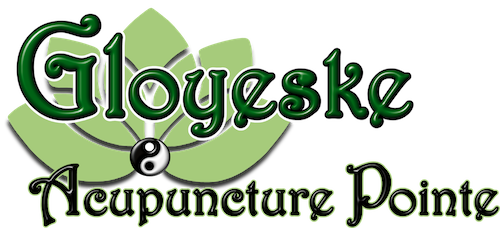Acupuncture isn’t always directed toward a particular disease or condition. It works by activating the body’s self-healing ability, which I explained briefly in a previous blog (https://www.gloyeskeacupuncturepointe.com/acupuncture-for-pain/). This is why acupuncture can address everything from irritable bowel syndrome to back pain to the side effects of chemotherapy. It’s a very broad medicine. When you get an acupuncture treatment for an issue you are experiencing, that issue will usually improve. However, it’s also likely that you’ll see improvements in other areas. You’ll have more energy, you’ll be better able to handle stress, anxiety, and depression, and you’ll sleep better!
The reason acupuncture can do this is that it focuses on treating the root cause of your health problems. The ancient Chinese knew that symptoms don’t arise out of nowhere. Symptoms are manifestations of an underlying malfunction and disease process. Pain is usually a signal from your body to address something, but it’s usually not an “overnight” thing. The issue causing pain or dysfunction has most likely been there for much longer. That process from dysfunction to pain can take years sometimes.
The Chinese also knew that a malfunction or disease process can give rise to many different symptoms. For instance, sciatica, headaches, digestive issues, and eye issues could all be coming from the same place, such as the Gallbladder channel. An easy way to understand the body from an Eastern Medicine perspective is to compare it to the Western perspective. Western medicine is based on the Cartesian paradigm https://www.ncbi.nlm.nih.gov/pmc/articles/PMC1289841/pdf/jrsocmed00206-0064.pdf that has dominated both scientific and philosophical views of the body for the past three hundred years. This philosophy created the notion that the body is a machine composed of many separate parts, and that health can be achieved by simply addressing each part in isolation. The mind and body are separate. There is no consideration for how the parts are connected and related. This is why in western medicine there are doctors for every different part of our body. We’ve got cardiologists. gastroenterologists, podiatrists, gynecologists, neurologists, rheumatologists, etc, etc. Everything is divided up into different parts, but our bodies are “one whole’ in Eastern Medicine. The body affects the mind, and the mind affects the body. In a perfect world, all of these different doctors and specialists would be communicating with one another about their patients, but that doesn’t happen in the real world. We absolutely need the variety of doctors and specialists, though. Sometimes a simple prescription can vastly improve someone’s health or quality of life, for instance.
Acupuncturists have a different perspective. Chinese medicine is based on Chinese/Eastern philosophy, which is inherently holistic. Acupuncturists look at the body as one interconnected whole, as mentioned earlier. From this viewpoint it is impossible to consider a specific part (like the back or gallbladder) without considering it in relation to the whole.This is, of course, much more consistent with what we know about how ecological and biological systems operate. For example, the environment is affected by predators interacting with prey, pollution affecting the air quality, plastics damaging our oceans,etc. Our bodies are one whole system that interacts with the environment around us! This explains why a single therapy like acupuncture can treat your entire body at the same time.
In Health,
Adam Gloyeske, LAc
